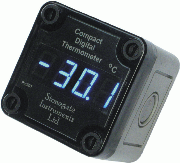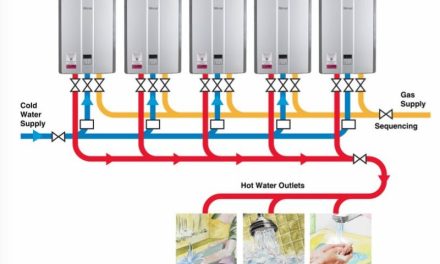 Refrigeration is an inherently energy intensive process but one that is essential in the production and storage of many products in the world today. However, as Shaun Evers, managing director at Stonegate Instruments explains, the installation of specialist equipment can lead to significant savings in both energy costs and carbon emissions
Refrigeration is an inherently energy intensive process but one that is essential in the production and storage of many products in the world today. However, as Shaun Evers, managing director at Stonegate Instruments explains, the installation of specialist equipment can lead to significant savings in both energy costs and carbon emissions
Industrial refrigeration systems use large amounts of energy and typically cost seven to ten times as much to run than they do to buy. However, with the installation of energy efficient industrial refrigeration equipment, energy can be saved and bills can be reduced. In addition, there are many possible applications of industrial refrigeration equipment. These can include cooling, freezing, temperature maintenance during storage, transportation and distribution, air conditioning in chemical plants (for example, for the separation of gases), in manufacturing and construction, in ice and snow sports facilities and in environmental testing chambers.
CRCEE
Government initiatives are empowering many users and owners of industrial refrigeration systems to look at ways to improve efficiency. Not least of these is the Carbon Reduction Commitment Energy Efficiency Scheme (CRCEE) – a mandatory emissions trading scheme that aims to improve energy efficiency and reduce the amount of carbon emissions emitted by large organisations within the UK.
Following the delayed start of the CRCEE (the initiative was originally planned to be introduced in 2011), many organisations aimed to make use of the extended window to implement effective energy management programmes to reduce the cost of CO2 allowances, with the consequences of potentially paying a considerably higher price if they don’t.
By scrapping allowance payments in 2011, participants are now able to invest the money directly into energy saving initiatives. Allowances, it is understood, will cost £40 each with revenues from the sales – estimated at being £1bn a year by 2014/15 – destined to be used to support public finances, rather than them being recycled back to participants, which was also in the original plan.
Wastage
 There are numerous ways in which energy can be wasted in industrial refrigeration, with refrigeration doors being left open for long periods of time being one of the most common. This causes huge inefficiencies in energy usage resulting in goods perishing. One simple way to resolve this is to install a ‘door open alarm’ which gives a loud warning when a refrigeration door has been left open for an extended period of time.
There are numerous ways in which energy can be wasted in industrial refrigeration, with refrigeration doors being left open for long periods of time being one of the most common. This causes huge inefficiencies in energy usage resulting in goods perishing. One simple way to resolve this is to install a ‘door open alarm’ which gives a loud warning when a refrigeration door has been left open for an extended period of time.
This type of product has a high brightness, multi-coloured LED display and incorporates a speech warning as the main feature, with two speakers to provide an audible and visual warning. With increasing volume to alert personnel nearby to take action, the alarm quickly makes employees aware of the fact that the door to a cold store has been left open, allowing them to react more quickly and close the door.
The alarm provides customers with a solution for preventing major problems and helps lower the costs associated not only with damaged goods but also energy losses due to refrigeration doors being left open.
Another way in which energy can be easily wasted in industrial refrigeration is through temperature control. For much of the time a cold room is at maximum capacity, with any further increases in temperature capable of potentially damaging items – particularly food that is being stored within them.
A compact digital thermometer can help ensure temperature is kept at an optimum level for products being stored. Three digit compact digital thermometers are designed to be used with a thermistor probe over a range of +/-50.0°C, which will constantly display the temperature whilst the probe and supply are connected. A digital thermometer can be easily installed at the entrance to a cold store or near equipment that needs to be monitored.
Summary
As operators need to avoid an actual rise in the temperature of a cold store, in order to meet refrigeration regulations, easily visible thermometers allow the measurement of air temperature. Installation of a digital thermometer can therefore provide a cost effective solution for companies with opportunities to save on food wastage and in turn reduce overall operating costs, not to mention reducing carbon emissions.
In today’s world of spiralling energy costs, introducing high efficiency energy saving devices is becoming a must. They can not only reduce energy and maintenance costs but can also safeguard the environment by reducing carbon emissions.
Stonegate Instruments
www.stonegate-instruments.co.uk
T: 0113 224 4440




